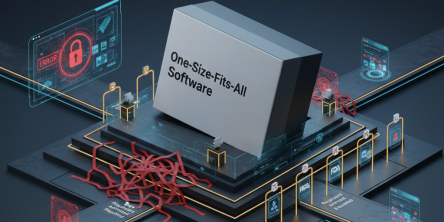How Python and AI Revolutionizing E-commerce

Anyone even vaguely familiar with today's fast-paced digital world would know that e-commerce businesses face intense pressure. Pressure to deliver exceptional customer experiences while also maximizing their profits. To achieve this delicate balance, companies operating in this space must now put the power of technology to work. So, how can these goals be achieved? Well, for that, you will need the help of technology. I will explain. Python is among the most sought-after platforms for creating e-commerce applications. Interestingly, it becomes an even more potent programming solution when it is combined with artificial intelligence (AI). Several businesses across different industries have been transformed by AI and its countless benefits. Suffice it to say that AI also has the potential to completely revolutionize e-commerce and how such businesses function. The combination of Python and AI can empower companies to boost their revenue, improve customer satisfaction, and so much more.
But don't go looking for professional custom Python development services just yet. What I mean to say is that I will, in this blog, offer you a closer look at the many, many benefits this combination stands to offer. This will help you better understand the potential of Python and AI and, consequently, make informed decisions.
How the Union of AI and Python Benefits E-Commerce Businesses?
Chatbots: Python and AI can be used together to create high-level chatbots to provide top-notch customer service. Natural language processing can also be used by such chatbots. To do what, you ask. To comprehend and respond to customer inquiries in a human-like manner, of course. It is well established now that chatbots improve customer satisfaction levels and reduce response times. Hence, they free up human agents to handle more complex tasks by responding to frequently asked questions, resolving issues, and more.
Personalization and recommendations: Highly individualized shopping experiences are also made possible by Python and AI. This is because AI algorithms can create in-depth customer profiles by analyzing customer data. Before you ask, data about customers' purchase history, browsing habits, etc. comes in handy here. Anyway, the point is that product recommendations, marketing campaigns, and other relevant factors can all be tailored. Customer engagement, conversion rates, and loyalty -- all of them receive a boost with such levels of personalization.
Demand forecasting: No matter if you want to prevent stock outs and/or overstocking or optimize inventory levels, you need precise demand forecasting. For that, predictive models can be built. They analyze historical sales data, market trends, and other such data. In addition to predictive modelling, businesses are also able to make informed decisions regarding pricing and production. This is because these models can forecast product demand with great precision.
Customer segmentation: One can segment their customers into distinct groups using Python and AI. This segmentation is based on shared characteristics. Anyway, the point is that businesses can tailor their marketing efforts and pricing strategies among other things -- all by analyzing customer data and identifying relevant segments. Plus, campaign efficiency is enhanced, and sales also increase as a result of this targeted approach.
Fraud detection: Preventing fraudulent transactions presents a massive challenge for e-commerce businesses. Thankfully, robust fraud detection systems can also be built with Python and AI. These systems can identify suspicious activities in real time by analyzing transaction data, identifying patterns, and more. As a result, chargebacks can be reduced, and customer trust can be bolstered. And let's not forget that businesses are also shielded from financial losses.
It is clear as day to see that bringing together Python and AI for the development of e-commerce solutions has considerable benefits. So, it is time to start looking for professional custom Python development services.
Similar Articles
Not long ago, the idea of multiple AI agents working together, each with a specific role, collaborating to solve problems, felt like science fiction.
In today’s data-driven world, choosing the right business intelligence (BI) platform can make or break your organization's analytics success.
We all know that companies today are no longer limited to a single physical location. Work processes are also no longer strictly isolated.
It is neither secret nor news that the mind-boggling pace of digital transformation around us has totally altered consumer expectations.
In the world of finance, speed and accuracy are everything. Decisions made a day late can cost millions, and delayed visibility into financial performance can leave even the best organizations blind to risks.
Discover the best tools to enhance employee recognition, boost morale, and create a more motivated, engaged workplace culture.
At first glance, off-the-shelf software appears to be a dream come true. They are quick to set up, cheaper upfront, and marketed as “universal.”
A modern business must continually adapt. This bit everyone seems to know.
The modern healthcare industry is undergoing a significant transformation. The models of healthcare that we are used to thus far are now making way for a more data driven approach









